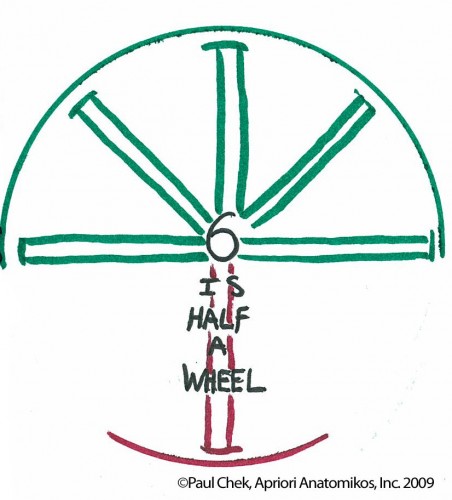6 IS Half A Wheel
HI From NYC!
Today I had a lovely tai chi session in Bryant park across from the hotel that Penny and I are staying at. The weather has warmed up a bit so not so much resistance from the cold.
Yesterday I was busy with coaching calls and my Last 4 Doctor Webinar, which if you signed up for it but couldn’t make it live, will be up on the CHEK Institute site soon!
By the time you read or view this Blog I’ll be well underway teaching my CHEK Approach to Functional Core Conditioning at ECA NY.
6 IS Half A Wheel

12 spokes makes a strong wheel.
This why throughout antiquity, 12 spoke wheels were crafted for carriages, wagons, and farm equipment such as rakes, plows and wheelbarrows.
If the sun were thought of as the axle of our own experience, the 12 spokes are represented by the constellations of the zodiac, each spoke of which exemplifies key strengths and personality traits.
When embodied, the strengths and abilities represented in the 12 signs or constellations of the zodiac offer us wholeness—a balanced perspective on life.
Yet, when horses pull a carriage, a rake, a plow, or when we push or pull a wheelbarrow in the mud, it is as though we’ve lost half a wheel.
Such efforts can leave us as drained as an athlete would be if they continued to play after having lost half their team.
Zen practice recognizes the value of teamwork.
When our wagon is stuck, we often need the help of others. When they arrive, it’s as though the wheel is complete again and we free ourselves from the mud.
Yet, if we do not learn from the knowledge and strengths of others and repeatedly get stuck in the mud, they naturally become inclined to leave us there.
This is exemplified in the story of the boy who cried, “wolf”.
Zen, in practice, is the willingness to meditate on completing your wheel when stuck in the mud.
See where your meditation takes you?
Love and chi,
Paul Chek














Find me on the web